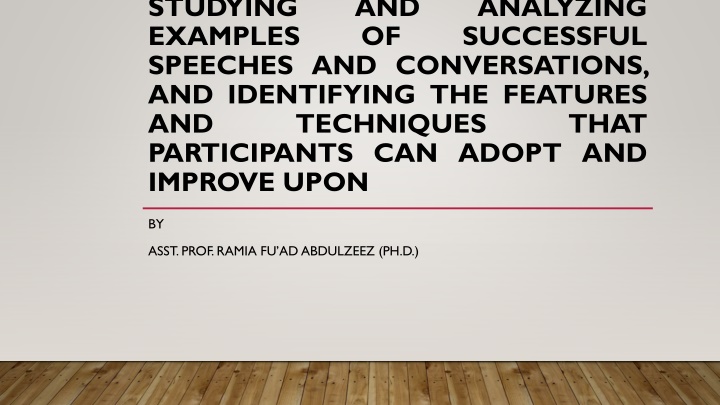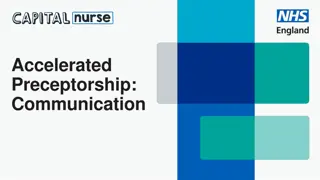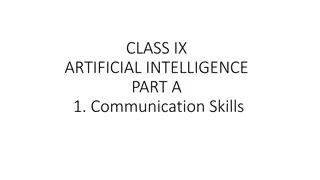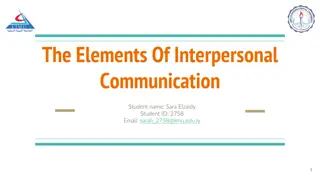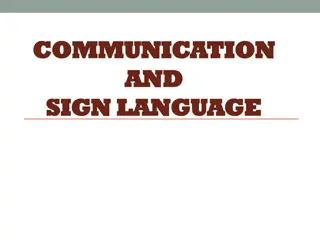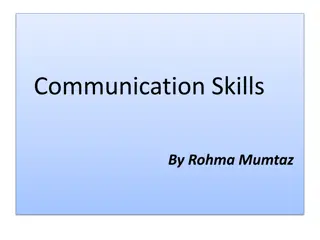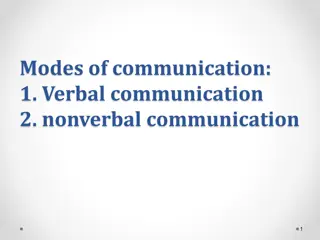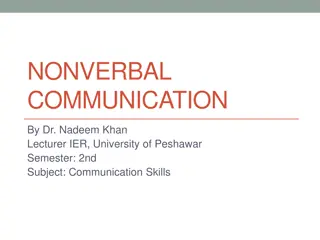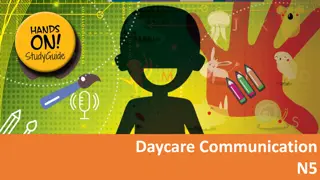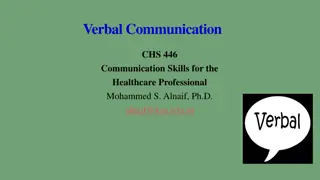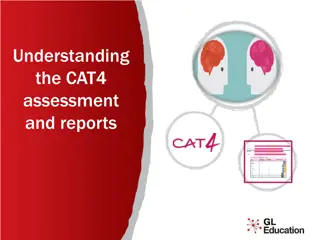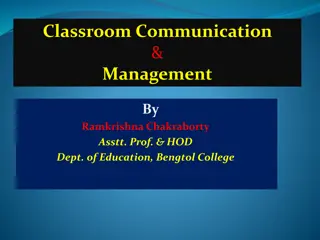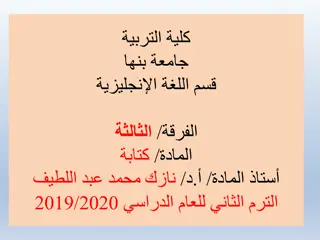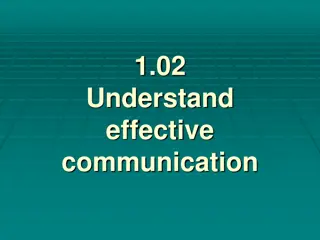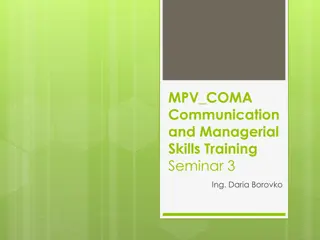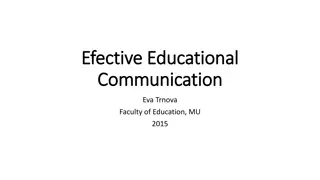Enhancing Verbal Communication Skills
Nuances of verbal communication, including spoken and written aspects, non-verbal cues, and the impact of technology. Dive into self-definitions and public speaking basics for effective communication.
Download Presentation

Please find below an Image/Link to download the presentation.
The content on the website is provided AS IS for your information and personal use only. It may not be sold, licensed, or shared on other websites without obtaining consent from the author.If you encounter any issues during the download, it is possible that the publisher has removed the file from their server.
You are allowed to download the files provided on this website for personal or commercial use, subject to the condition that they are used lawfully. All files are the property of their respective owners.
The content on the website is provided AS IS for your information and personal use only. It may not be sold, licensed, or shared on other websites without obtaining consent from the author.
E N D
Presentation Transcript
STUDYING EXAMPLES SPEECHES AND CONVERSATIONS, AND IDENTIFYING THE FEATURES AND TECHNIQUES PARTICIPANTS CAN ADOPT AND IMPROVE UPON AND OF ANALYZING SUCCESSFUL THAT BY ASST. PROF. RAMIA FU ADABDULZEEZ (PH.D.)
VERBAL COMMUNICATION When people ponder the word communication, they often think about the act of talking. We rely on verbal communication to exchange messages with one another and develop as individuals. The term verbal communication often evokes the idea of spoken communication, but written communication is also part of verbal communication.
Verbal Communicatio n Spoken language Non-verbal Communicatio n Laughing, crying, coughing, etc. Gestures, Body Language, etc. Oral Written Non-verbal Language/Sign Language
In what ways do you define yourself as a person? What kinds of definitions do you have for yourself? What do you think would happen if you changed some of your self- definitions?
How do advances in technology impact verbal communication? What are some examples?
RIGHT NOW ID LIKE TO TAKE ABOUT 5 MINUTES AND . . . Tell you about my experiences/feelings now while you are having this lecture.
THE BASICS OF PUBLIC SPEAKING awareness of and sensitivity toward your audience (in this case, more than one person); an exchange of explicit messages about content (facts, ideas, information) and less explicit ones about relationship (how you relate to one another, such as trust, liking, respect); a dependence on feedback to know if you are successful in being understood (usually nonverbal in public speaking, but still present); the fact that the communication is face-to-face rather than mediated (through a computer, telephone, mass media, or writing).
OBSTACLES OF SPEAKING Anxiety Fear of Failure Fear of Rejection of Self or Ideas Mental Preparation Physical Preparation Contextual Preparation Speech Preparation
